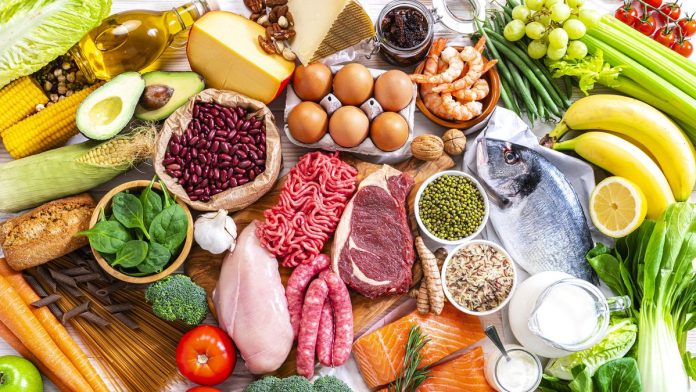These seasonal foods are often much cheaper during the fall seasons
As grocery store prices hit an all-time high this year, with food prices increasing by an average 9.4% in the US, shoppers are keen to find the cheapest foods on the shelves.
And, while the price of fresh produce has no doubt increased this year, nutritional expert Stephanie Yates from Bulk.com reveals a handy tip for saving money and staying healthy.
Eating seasonal produce not only tastes better, it’s also lower in price than other fresh goods that aren’t easily sourced at this time of year.
The expert said: “Understanding seasonality can be useful when planning meals ahead or budgeting for weekly shops. However, it can be difficult to know exactly what is in season and for how long. A simple way to keep up with what’s in season is keeping an eye on the prices of produce in stores. When the prices drop, that’s usually a sign that the food is coming into season, whereas high prices are a good indicator that the food is out of season.”
What foods are in season during Autumn?
As we move into Autumn, if you’re looking for fruits, opt for apples, pineapples, and kiwi fruit, as not only will they be at their cheapest, they’ll also be much brighter and taste better as they haven’t traveled long distance before reaching your plate.
When it comes to vegetables, look out for price drops in sweet potato, mushrooms, squash, and beets which are all in season during Autumn.
· Apples
· Beets
· Cranberries
· Radishes
· Sweet Potato
· Pineapples
· Mushrooms
· Squash
· Kiwi fruit
· Spinach
What are the benefits of eating seasonally?
To help you understand how this can provide some major benefits, experts from Bulk.com have put together some benefits of seasonal eating.
NUTRIENT CONTENT
Eating fresh, ripe produce optimizes the concentration of certain nutrients as many nutrients in fresh produce decline over time. Seasonal food will also appear much brighter and vibrant in color, often more plump than non-seasonal produce which can often look a little lackluster. The variety of eating seasonal produce also provides multiple health benefits due to consuming a wider variety of different nutrients.
TASTE
Seasonal food is fresher and naturally at its best so tends to have much more flavor. Fresh, seasonal produce which hasn’t traveled as far tastes better because the produce hasn’t been selectively bred for a longer shelf-life and transportability. When produce is grown and picked in season it tastes much fresher, riper, sweeter, and more delicious.
ENVIRONMENTAL IMPACT
Eating seasonally also reduces the energy and associated CO2 emissions required to grow and transport out of season produce. When you buy seasonal produce, you help to reduce the demand for out of season produce, which requires shipping/importing from other countries. This means less transportation, less fuels, refrigeration, and less irradiation of produce.
SUPPORTS LOCAL ECONOMY
Buying seasonal produce from a local greengrocer, market, farm shop or veg box scheme is a great way to support local businesses and farming.












